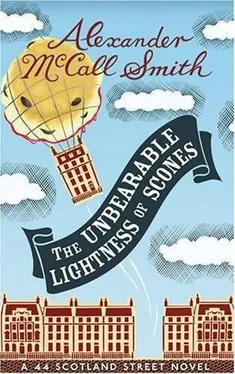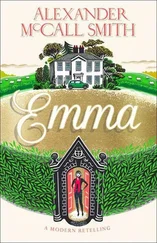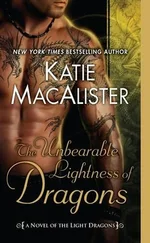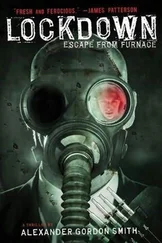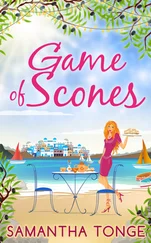Alexander Smith - Unbearable Lightness of Scones
Здесь есть возможность читать онлайн «Alexander Smith - Unbearable Lightness of Scones» весь текст электронной книги совершенно бесплатно (целиком полную версию без сокращений). В некоторых случаях можно слушать аудио, скачать через торрент в формате fb2 и присутствует краткое содержание. Жанр: Триллер, на английском языке. Описание произведения, (предисловие) а так же отзывы посетителей доступны на портале библиотеки ЛибКат.
- Название:Unbearable Lightness of Scones
- Автор:
- Жанр:
- Год:неизвестен
- ISBN:нет данных
- Рейтинг книги:4 / 5. Голосов: 1
-
Избранное:Добавить в избранное
- Отзывы:
-
Ваша оценка:
- 80
- 1
- 2
- 3
- 4
- 5
Unbearable Lightness of Scones: краткое содержание, описание и аннотация
Предлагаем к чтению аннотацию, описание, краткое содержание или предисловие (зависит от того, что написал сам автор книги «Unbearable Lightness of Scones»). Если вы не нашли необходимую информацию о книге — напишите в комментариях, мы постараемся отыскать её.
Unbearable Lightness of Scones — читать онлайн бесплатно полную книгу (весь текст) целиком
Ниже представлен текст книги, разбитый по страницам. Система сохранения места последней прочитанной страницы, позволяет с удобством читать онлайн бесплатно книгу «Unbearable Lightness of Scones», без необходимости каждый раз заново искать на чём Вы остановились. Поставьте закладку, и сможете в любой момент перейти на страницу, на которой закончили чтение.
Интервал:
Закладка:
Irene did not take forty-five minutes. Within ten minutes of going in, she came out again.
“You can go in to see Dr. Sinclair now, Bertie,” she said, rather tersely. “Mummy’s popping out to Valvona & Crolla, but will be back at the end of your session.”
Bertie went in and sat in the chair in front of Dr. Sinclair’s desk.
There was a silence, and out of politeness Bertie thought he would make a remark. “Do you ever think about wolves, Dr. Sinclair?”
The psychotherapist, who had been scribbling a note on his pad of paper, looked up sharply.
“Wolves, Bertie? No, I can’t say I think about wolves very often.” He paused. “Do you?”
Bertie nodded. “I think that wolves are going to come back,” he said.
Dr. Sinclair stared at him. “That’s interesting, Bertie. Does that worry you?”
Bertie thought for a moment. “A little bit. I wouldn’t like to be bitten by one.”
Dr. Sinclair said nothing. Freud’s Little Hans, he thought; he had been worried about being bitten by the dray horses. And then there was Freud’s wolf man. How strange that young Bertie should…
Bertie interrupted this disturbing train of thought. “Of course, we could always get the Archers to deal with them if they became too much of a problem in Edinburgh.”
Dr. Sinclair looked puzzled. “‘The Archers,’ Bertie? Who are these archers?”
“They wear a green uniform,” explained Bertie. “And they have a hide-out on the edge of the Meadows. I’m not sure if they’d be able to hit the wolves, though…”
Dr. Sinclair made a note on his pad, but kept his gaze on Bertie. I have almost made a major mistake, he thought. I was on the point of discharging this poor little boy, on the grounds that he did not need therapy. And now this… a complicated neurotic structure, complete with wolf and archer fantasies, and I missed it entirely, until it revealed itself, unfolded before my eyes.
I owe his mother an apology, he thought. It just goes to show how professional arrogance and its attendant assumptions can lead one up entirely the wrong path.
93. A Dinner Invitation
Bruce’s invitation to dinner at the Todds’ house in Braid Hills had been delivered to him by Todd’s secretary. It was written on a correspondence card tucked into a white envelope: “Dear Bruce, Sasha and I would love to have you round for dinner next Saturday. Free? I hope so. Raeburn.”
Bruce spent some time analysing the precise wording of this message, and the mode of its delivery. The fact the envelope had been brought to him by Todd’s secretary was significant, but he could not yet work out exactly what that significance was. Was Todd embarrassed to ask him face-to-face? Was he concerned Bruce would find it easier to refuse if he delivered the invitation personally? Or was it a case of his not being overly enthusiastic and therefore issuing the invitation as a casual note, dashed off and tossed across the desk to his secretary? It was hard to tell.
And then there was the wording, which was capable of as many readings as there were words. “Sasha and I”: did that mean Sasha was the originator of the invitation, with Todd being added merely for politeness’s sake? He could hardly have written: “Sasha would love to have you round for dinner,” as that would have made clear his own indifference, or indeed antipathy, to the idea of entertaining him.
The words “would love to have you round” were also problematic. Todd would never say he would love anything to happen; that did not sound at all like him. He would say, “I would like to have you round,” or, possibly, “Would you care to come round for dinner?” He would not say, “I would love to have you round.” That was the language of the thespian, the man in touch with his feminine side; it was not the language of men like Todd. So this meant, perhaps, that the wife was the real author of the note.
But then, just a word or two further on, the presumption changed. “Free?” had the ring of the authentic Todd: he was always saying things like that. “See?” “Agree?” “Problem?” He liked single-word sentences with a question-mark at the end. And “I hope so” was also quintessential Todd. It was an expression he used when he wanted to preclude further discussion. “Free? I hope so” meant: you had better be.
So Bruce concluded this invitation as the work of two minds. The words used at the beginning were those dictated by Sasha; those at the end were Todd’s. They both wanted him to come to dinner then. And Bruce, still grateful to Todd for his kindness in giving him his job back, had written a note saying he would be delighted to accept. “Saturday great,” he wrote. “Can’t wait. Bruce.”
Even if he had not expected to be invited for dinner quite so soon, Bruce had anticipated some gesture from Todd. Since he had started in the firm once more, Bruce had been assiduous in the performance of his duties. His reports had all been models of their type: hedged about with all manner of exclusion clauses, as was standard surveyor practice, but clear and concise, and, what was most important, delivered well on time. One client, in fact, had been so pleased by the speed with which Bruce had completed a survey that he had specially drawn Todd’s attention to it and asked him to compliment Bruce.
Bruce accepted Todd’s words of praise with modesty. “I do my best,” he said. “It was an unusual place.”
“Oh yes?”
“Yes,” said Bruce. “It underlined how heated the market’s become: a quarter of a million for a very small studio apartment in Great King Street.”
Todd shrugged. “Fashionable area.”
“I know that,” said Bruce. “But this was actually a converted cupboard. A large one, but still a cupboard.”
“That’s taking it a bit far,” said Todd.
Bruce nodded. “They had a very clever architect. He managed to get a mezzanine floor in and a sunken bath. Pretty amazing.”
“And windows?”
“No,” said Bruce. “The original cupboard had no windows. It was just a cupboard, you see. But they put in really good hidden lighting. Quite a place.”
“It’s often the address that counts,” mused Todd. “A cupboard in Great King Street is worth a three-bedroomed flat in Easter Road. But well done, anyway. They seem pleased with what they’ve got.”
“I hope there’s only one of them,” said Bruce. “I don’t think there would be room for two.”
Now, standing before Todd’s house, glancing at his wristwatch to check he was neither too early nor too late, Bruce took a deep breath. It would not be easy seeing Sasha again, after that unfortunate misunderstanding, and as for the daughter… Had Todd said anything about her?
Todd answered the doorbell. “It’s you,” he said.
“Yes,” said Bruce. “Me.”
Todd ushered him into the hall. It had been all of four years – maybe a bit longer – since Bruce had last been in the house, but as he stood there, it all seemed remarkably familiar. The views of the Edinburgh skyline, which could be seen from the front windows, were reproduced in prints on the wall. And then there were the golfing prints: “Hole in One,” “The Old Course at St Andrews,” “On Course for a Birdie” and so on.
“The ladies are through here,” said Todd, indicating the door that led into the living room. “You’ll remember my daughter, Lizzie, won’t you? That dance we all went to?”
Bruce tried to ensure that his expression did not give him away. Lizzie Todd! There had been nothing about her on Todd’s invitation, and had there been Bruce would not have been standing there that evening. What a disaster she was, Bruce started to think, and then stopped himself. That was the old Bruce; the new Bruce said: “Lizzie? Of course I remember her. How nice.”
Читать дальшеИнтервал:
Закладка:
Похожие книги на «Unbearable Lightness of Scones»
Представляем Вашему вниманию похожие книги на «Unbearable Lightness of Scones» списком для выбора. Мы отобрали схожую по названию и смыслу литературу в надежде предоставить читателям больше вариантов отыскать новые, интересные, ещё непрочитанные произведения.
Обсуждение, отзывы о книге «Unbearable Lightness of Scones» и просто собственные мнения читателей. Оставьте ваши комментарии, напишите, что Вы думаете о произведении, его смысле или главных героях. Укажите что конкретно понравилось, а что нет, и почему Вы так считаете.
